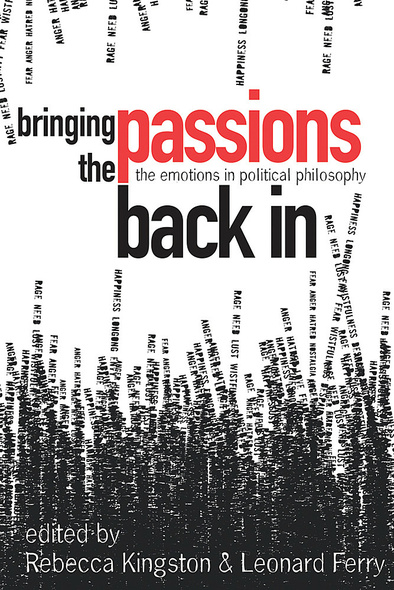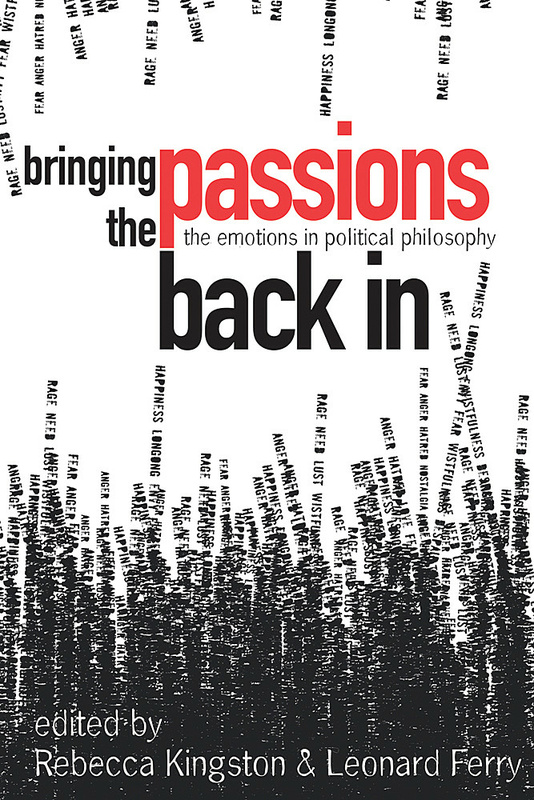
Bringing the Passions Back In
The Emotions in Political Philosophy
Bringing the Passions Back In draws upon the history of political theory to shed light on the place of emotions in politics; it illustrates how sophisticated thinking about the relationship between reason and passion can inform contemporary democratic political theory. These re-discovered resources are used to revise the rationalist and idealist model for political life in Anglo-American versions of liberalism.
The rationalist ideal has been met with cynicism in progressive circles for undermining the role of emotion and passion in the public realm. By exploring the social and political implications of the emotions in the history of ideas, contributors examine new paradigms for liberalism and offer new appreciations of the potential for passion in political philosophy and practice.
This important overview of the place of emotions within the history of political thought sheds new light on problems facing contemporary liberal and democratic political theory.
One of contemporary political theory’s greatest weaknesses is its neglect of the role of passion and emotion in politics. This volume illustrates the ways in which sophisticated thinking about the relationship between reason and passion can contribute to democratic theory. Its breadth – spanning classical, medieval, modern, and contemporary theories – is truly impressive.
What are the roles of the passions and emotions in political life? The contributors to Bringing the Passions Back In answer this timely question by carefully rereading the classic theorists and showing how they help us see the many complex and formative roles the passions play, yet which tend to be overlooked in contemporary political thought. This is an important contribution to an expanding field of political theory and philosophy.
Rebecca Kingston is an associate professor of political science at the University of Toronto. Leonard Ferry is a doctoral candidate in political philosophy at the University of Toronto.
Contributors: Arash Abizadeh, Leah Bradshaw, Sharon Krause, Ingrid Makus, Amélie Oksenberg Rorty, Marlene K. Sokolon, Robert C. Solomon, Christina Tarnopolsky, and Charles Taylor
Foreword: Politics and Passion / Charles Taylor
Acknowledgments
Introduction: The Emotions and the History of Political Thought / Leonard Ferry and Rebecca Kingston
1 Explaining Emotions / Amélie Oksenberg Rorty
2 Plato on Shame and Frank Speech in Democratic Athens / Christina Tarnopolsky
3 The Passions of the Wise: Phronesis, Rhetoric, and Aristotle’s Passionate Practical Deliberation / Arash Abizadeh
4 Troubling Business: The Emotions in Aquinas’ Philosophical Psychology / Leonard Ferry
5 The Political Relevance of the Emotions from Descartes to Smith / Rebecca Kingston
6 Passion, Power, and Impartiality in Hume / Sharon Krause
7 Pity, Pride, and Prejudice: Rousseau on the Passions / Ingrid Makus
8 Feelings in the Political Philosophy of J.S. Mill / Marlene K. Sokolon
9 Emotions, Reasons, and Judgments / Leah Bradshaw
10 The Politics of Emotion / Robert C. Solomon
Notes
Bibliography
Contributors
Index





